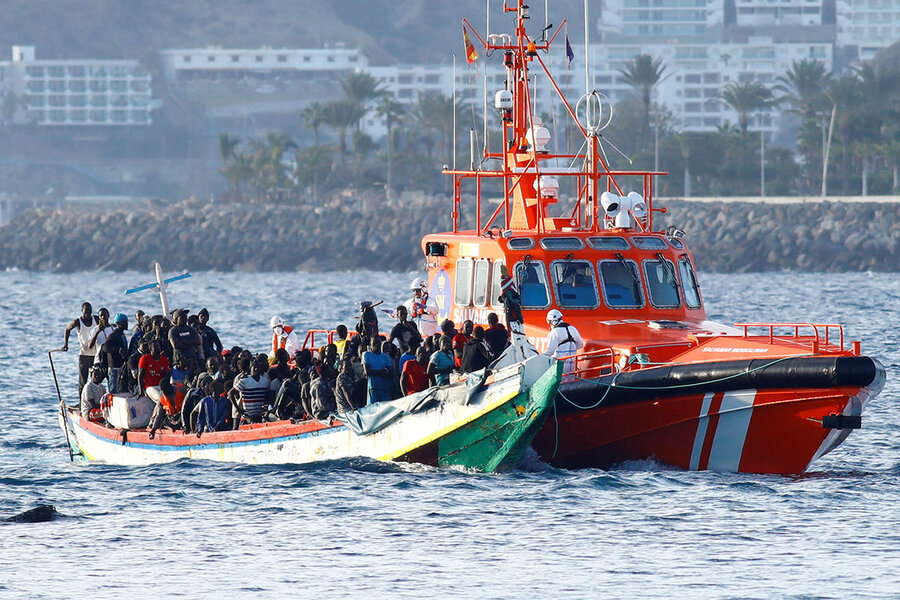MADRID – A report was recently published by the organisations Irídia and Novact, in collaboration with ten other groups. This document highlights the numerous rights violations of migrants who entered Spain via irregular routes in 2021 and 2022.
Most African migrants who reach Europe do so via dangerous and illegal routes. Even if they have the financial resources, they can’t just pack their bags and hop on a plane. The inability to apply for asylum at border crossings or obtain visas in their home countries is just one of the many rights violations the report exposes.
The harsh reality of the Spanish coast
Loueila Mint El Mamy, lawyer and expert in migration matters, presented the report in Madrid. She emphasised that although asylum can be applied for in Spain, this is often not achieved in practice. Thousands of people die at sea every year trying to reach Spanish shores.
Migrants face violent repression. This often results in immediate deportations or detention in temporary accommodation centres. It is also here where rights violations and poor living conditions have been found. Sani Ladan, a Cameroonian human rights activist, stressed that Spain’s southern border has become an area of continued legal exception and impunity.
The tragedy of Melilla
One of the most serious human rights violations was observed on June 24 in 2022 in Melilla. During an attempt to cross the border, at least 40 people died and 80 disappeared. Nevertheless, the Public Prosecution Service closed the investigation without any indication of wrongdoing by the security forces.
A decade of human rights violations
The report names this tragedy as the worst human rights violation by the Spanish state in the past decade and the deadliest at an EU land border. The need for thorough investigation and accountability is urgent.
A fragmentary and incomplete picture
The organisations point out the enormous difficulties in preparing the report, given the limited public official information on irregular entries and the fragmented and incomplete data.
Structural racism and repeated migration peaks
Clara Calderó from the Instituto Novact de Noviolencia emphasises that the recent migration spike in the Canary Islands should not be seen as an isolated incident but as a sign of structural racism. In 2021 and 2022, the Canary route was the deadliest, followed by the Levante route.
Call for changes in policy and legislation
The participating human rights organisations are demanding measures to increase protection standards at Spain’s southern border, both politically and legally. They call for the abolition of the Immigration Law due to its discriminatory nature and advocate the implementation of a specific law against racism and discrimination. They also demand the abolition of the so-called ‘hot returns’, supported by the current Public Safety Act, better known as the ‘Muzzle Act’.
Also read: Migration route by sea to the Canary Islands was deadliest


